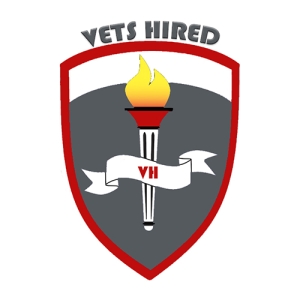The Power of Mentorship Veterans Guiding the Next Generation
Mentorship is a powerful tool that has the potential to shape lives, careers, and futures. When veterans step forward to guide and mentor the next generation, a unique bond is formed, bridging the gap between experiences gained through military service and the challenges faced by young individuals entering the professional world.
The Value of Veteran Mentorship
Veterans bring a wealth of experience, skills, and values acquired through their service in the armed forces. This knowledge, combined with their personal growth and development during their military careers, positions veterans as exceptional mentors. They possess unique insights into leadership, discipline, resilience, adaptability, teamwork, and problem-solving, which are valuable attributes sought after by young individuals entering various professional fields.
When veterans serve as mentors, they can guide mentees through the challenges and uncertainties of their careers, offering a perspective enriched by their military background. Veterans can share lessons learned, provide practical advice, and help mentees develop essential skills such as goal setting, time management, and effective communication. By leveraging their experience, veterans can inspire and motivate mentees to reach their full potential.
Transitioning from military service to civilian life can be a challenging and uncertain journey, especially when it comes to defining the best career opportunities. However, veterans possess a wealth of knowledge, skills, and experiences that can significantly benefit the next generation. Through the power of mentorship, veterans can guide and support individuals in their career transition, helping them navigate the complexities of the civilian workforce and discover the best paths for their professional growth.
The Benefits of Mentorship:
Mentorship plays a crucial role in career development, offering numerous benefits to both mentors and mentees. For veterans, mentoring the next generation provides an opportunity to give back, share their expertise, and make a positive impact. Here are some key advantages of mentorship:
1. Guidance and Support: Veterans-turned-mentors can offer valuable guidance and support to individuals transitioning into civilian careers. They understand the challenges and obstacles that arise during this process, and their experience can help mentees navigate the intricacies of the workforce.
2. Sharing Knowledge and Experience: Veterans have a unique skill set and a diverse range of experiences acquired during their military service. By sharing these insights, mentors can provide mentees with practical advice, industry-specific knowledge, and real-world perspectives, enabling them to make informed career decisions.
3. Networking Opportunities: Mentors often have established networks within their industries. Introducing mentees to their professional connections can open doors to new opportunities, expand their network, and increase their chances of finding the right career path.
4. Skill Development: Veterans possess a wealth of transferable skills, such as leadership, adaptability, and problem-solving, which can be invaluable for mentees. Mentors can help mentees identify their strengths and weaknesses, suggest skill-building activities, and provide feedback to enhance their professional growth.
Finding the Right Mentors:
Finding mentors who align with your career aspirations and can provide meaningful guidance is essential. Here are some strategies to help you find the right mentors:
1. Network Within Veteran Communities: Start by reaching out to veteran organizations, associations, or networking groups. These communities often have mentorship programs specifically designed to connect veterans with mentors who understand their unique experiences.
2. Leverage Alumni Networks: If you attended a military academy or participated in specialized training programs, explore alumni networks to connect with veterans who have successfully transitioned into civilian careers. These individuals can serve as valuable mentors.
3. Attend Industry Events: Attend conferences, seminars, and networking events related to your desired career field. Engage in conversations and seek out veterans who have established themselves in those industries. They may be willing to share their experiences and offer mentorship.
4. Utilize Online Platforms: Utilize professional networking platforms like LinkedIn to identify veterans who are working in your target industries. Connect with them, express your interest in their career journey, and inquire about the possibility of mentorship.
Reaching Out to Potential Mentors:
Approaching potential mentors requires tact and preparation. Here are some steps to consider:
1. Research the Mentor: Before reaching out, gather information about the mentor’s background, accomplishments, and areas of expertise. This research will enable you to tailor your outreach effectively and demonstrate your genuine interest.
2. Craft a Personalized Message: Write a concise and thoughtful message introducing yourself and explaining why you admire the mentor’s achievements. Highlight your career aspirations and express your desire to learn from their experiences as a mentor.
3. Be Respectful of Their Time: Mentors are often busy professionals. Clearly communicate your expectations regarding the time commitment and frequency of interactions, and assure them that you value and respect their time.
4. Offer Value: When reaching out to potential mentors, emphasize what you can bring to the table as well. Highlight any relevant skills, experiences, or knowledge that may be of interest to the mentor. Demonstrating your willingness to contribute and add value to the relationship can make your request more appealing.
5. Be Genuine and Authentic: Authenticity is key when reaching out to potential mentors. Be sincere in expressing why you specifically want them as your mentor and how their guidance aligns with your goals. Authenticity builds trust and increases the likelihood of a positive response.
6. Follow-Up: If you don’t receive an immediate response, don’t be discouraged. Follow up with a polite and friendly message, reiterating your interest and expressing gratitude for their consideration. Persistence and genuine enthusiasm can make a difference in capturing the attention of busy professionals.
7. Respect Boundaries: If a potential mentor declines your request or does not respond, respect their decision and move on. Not everyone will be available or willing to mentor, and that’s perfectly fine. Keep searching for mentors who are a good fit for your career goals and values.
Mentorship is a powerful tool that veterans can utilize to guide and support the next generation in their career transition. By sharing their knowledge, experiences, and networks, veterans can help mentees define their career paths, overcome challenges, and succeed in the civilian workforce.




